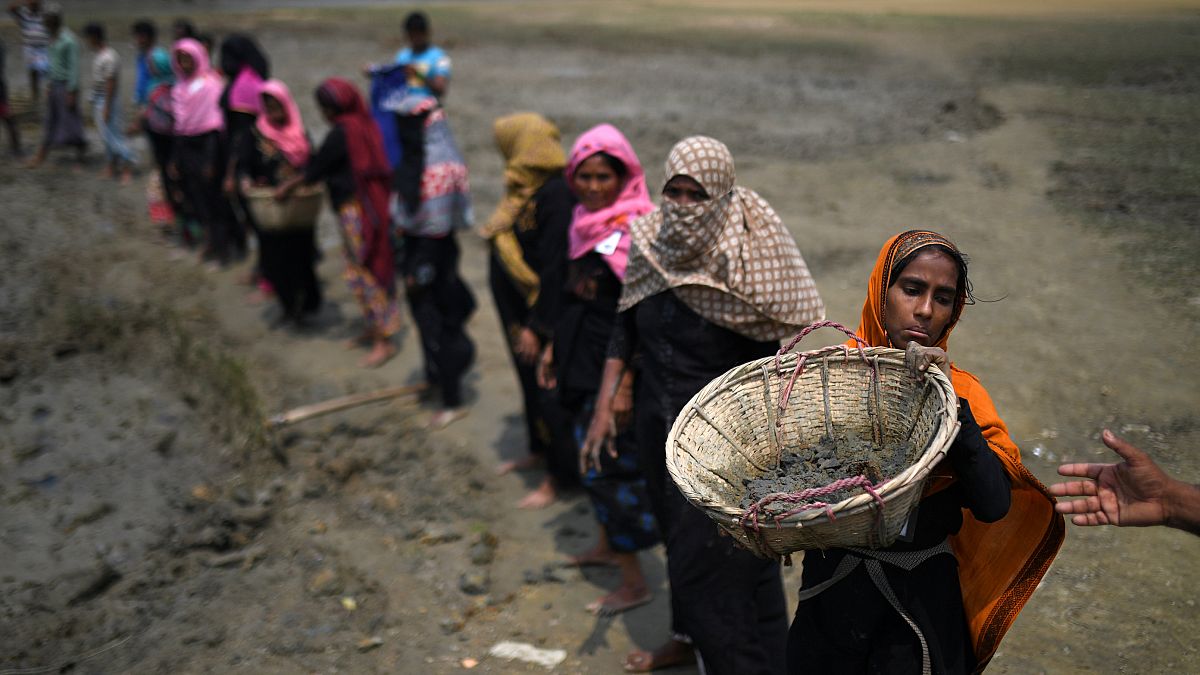A record number of refugees was recorded in 2017 by the UNHCR.
A record 68.5 million people were forcibly displaced worldwide in 2017 as they fled persecution, conflict and violence, a new report from the UN Refugee Agency found.
According to the UNHCR, one in every 110 persons in the world is currently displaced, a sharp increase on the decade. Back in 2007, some 40 million people were displaced, averaging to one in every 157 person worldwide.
“An estimated 16.2 million people were newly displaced in 2017. This included 11.8 million individuals displaced within the borders of their own countries and 4.4 million newly displaced refugees and new asylum-seekers,” the report said.
Five countries account for majority of refugees
More than two thirds (68%) of all refugees worldwide came from just five countries, according to the UNCHR.
They are Syria (6.3 million), Afghanistan (2.6 million), South Sudan (2.4 million), Myanmar (1.2 million) and Somalia (986,400).
“As in previous years, the Syrian Arab Republic (Syria) continued to account for the largest forcibly displaced population globally. As of the end of 2017, there were 12.6 million forcibly displaced Syrians, comprising around 6.3 million refugees, 146,700 asylum-seekers, and 6.2 million IDPs (Internally Displaced People),” the report stated.
“The situations in the DRC and Myanmar deteriorated rapidly in the second half of 2017, affecting millions of people. The flight of refugees from Myanmar to Bangladesh occurred at a particularly rapid rate,” it added.
The Americas
For the first time since 2012, the US was the largest recipient of new asylum applications, the UNCHR revealed.
More than 331,000 applications were lodged in the US last year, a 27% increase on the previous year and nearly double the 2015 number. Most originated from the North of Central America.
“More people undertook the perilous journey northwards to seek asylum in Mexico and the United States of America, even as Venezuelans continued to flow out to neighbouring countries, those in the region, and farther away,”
Europe
Germany came second after the US in terms of asylum applications. It lodged 198,000 new applications in 2017, a 73% drop on the previous year (722,400) and less than half the number in 2015.
However, the refugee population in Germany increased by 45% on the year making the country the sixth-largest refugee-hosting nation.
“The impact of the movement of refugees to Europe in 2015 and 2016 was seen in the growing refugee population as the backlog of asylum applications was gradually processed during 2017. In particular, the refugee population in Germany increased by 45 per cent, with substantive decisions made on over half a million cases,” the report highlighted.
According to the latest report from the European Asylum Support Office, there were 44% fewer asylum applications across the EU in 2017 (728,470) than on the previous year, mainly due to the drop registered in Germany.
The report highlighted that in Italy, France, Greece, the UK and Sweden the proportion of applicants “almost doubled between 2016 and 2017.”
“Migratory pressure at EU external borders remained high, but decreased for the second consecutive year, mostly at the eastern and central Mediterranean routes, whereas there was an unprecedented upsurge on the Western Mediterranean route,” EASO said.
Syria, Iraq and Afghanistan were the three main countries of origin of applicants in the EU, accounting for 15%, 7% and 7% respectively
They were followed by Nigeria, Pakistan, Eritrea, Albania, Bangladesh, Guinea and Iran.
‘Watershed’
Filippo Grandi, the UN High Commissioner for Refugees warned that the world is “at a watershed, where success in managing forced displacement globally requires a new and far more comprehensive approach so that countries and communities aren’t left dealing with this alone.”
During a visit to the Domiz refugee camp in Iraq on Sunday, US actress and special envoy to the UNCHR Angelina Jolie also warned of “terrible consequences” and called for more funding.
"When UNHCR’s Syria response was only 50 per cent funded last year, and this year it is only 17 per cent funded, there are terrible human consequences. We should be under no illusions about this,” Jolie said.
“When there is not even the bare minimum of aid, refugee families cannot receive adequate medical treatment, women and girls are left vulnerable to sexual violence, many children cannot go to school, and we squander the opportunity of being able to invest in refugees so that they can acquire new skills and support their families,” she added.
